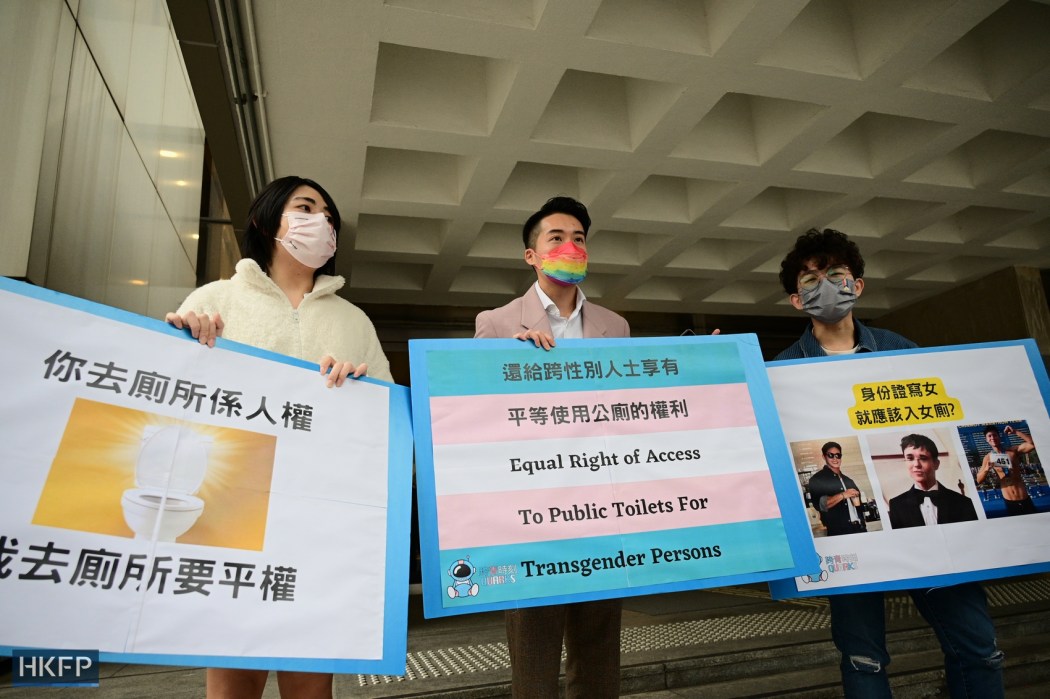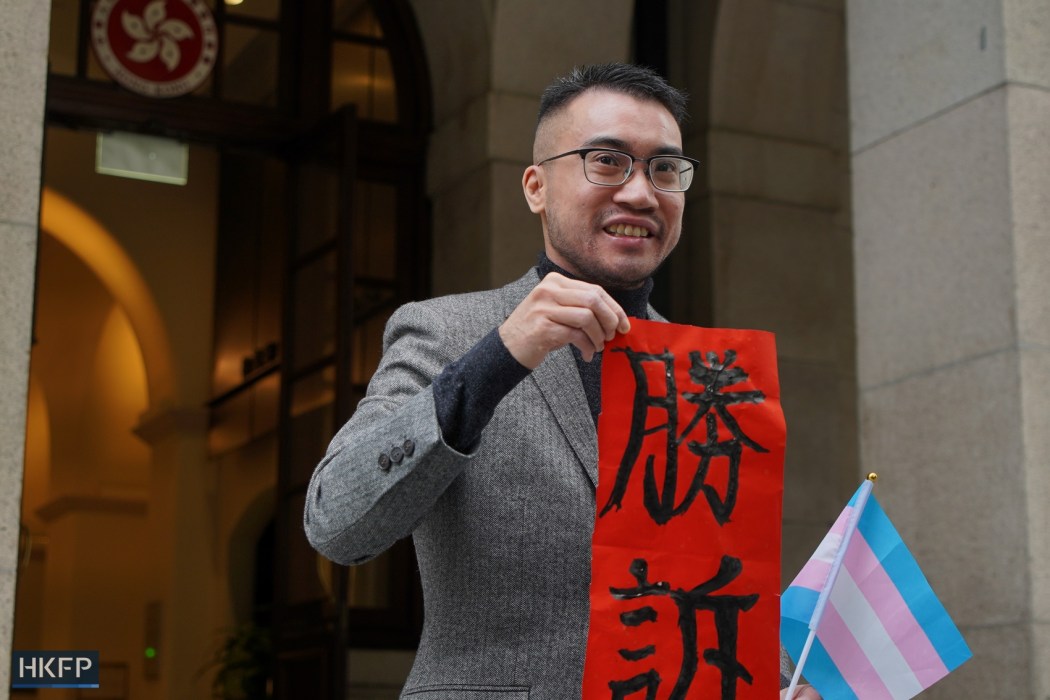Thirteen transgender people on Saturday applied to change the gender marker on their identity cards to their preferred gender identity, in a coordinated effort to urge the Immigration Department to update its terms. It came after a ruling by the city’s top court allowing trans people to do so without having undergone full sex reassignment surgery (SRS).

Speaking outside Immigration Tower in Wan Chai, Christine Chu – member of transgender concern group Quarks – said their group would be joined by another eight people who had previously filed applications to change their gender markers in February and March.
“But months later, those applications are still pending,” Chu, a trans woman, told reporters, adding that the applicants had not received word from the department beyond an acknowledgement.

Chu, who founded the Hong Kong Trans Law Database this year, said the Immigration Department had still not updated its conditions for changing gender markers to reflect February’s ruling.
‘Not medically required’
The department’s website currently states that people who have undergone SRS, psychotherapy and hormonal treatment, and have had a “real-life experience of the chosen gender role for a period of time” are eligible to submit an application with supporting documents to change their gender marker.
A full SRS procedure for trans men includes the removal of the uterus and ovaries, and the construction of a penis or “some form of a penis.” A sex change from male to female would include the “removal of the penis and testes”, and the “construction of a vagina,” February’s judgement read.
The court ruled that the procedure was “at the invasive end of the treatment spectrum for gender dysphoria” and “not medically required by many transgender persons.”

“We urge the Immigration Department and its Registration of Persons Office to face trans folks’ demands,” Chu said on Saturday, a day after Quarks called on trans people who had not undergone SRS to submit applications to change their gender markers.
“The Registration of Persons Office has been given ample time to update its policies. For it to continue to uphold a policy ruled as unconstitutional to this day, for it to continue to adhere to that policy for changing one’s gender marker, would mean that the Immigration Department is violating constitutional rights,” Chu said.
Quarks vice-chairperson Zephyrus Tsang, a trans man, said the Department’s understanding of “sex-reassignment surgery” generally only referred to the aforementioned genital surgeries, known colloquially as “bottom surgery.” He added that gender-affirming care could refer more broadly to other forms of treatment, such as “top” surgeries including mastectomy.
Five months later
The move by Quarks came five months after Hong Kong’s top court in February overturned a government policy that barred trans people from changing the gender marker on their identity cards if they had not undergone full sex reassignment surgery. Trans activist Henry Tse, one of the appellants, said he had “successfully defended [his] dignity and male identity.”
Tse, 31, together with two other trans men identified as “Q” and “R,” lost their first legal challenge in 2018. Tse and Q lodged an appeal to the Court of Appeal, which upheld the government’s policy in a ruling handed down last January.

The top court sided with the appellants this February, ruling that the policy violated people’s constitutional rights to privacy under the Hong Kong Bill of Rights ordinance.
The “external incongruence” between their physical appearance and the gender displayed on their identity card could elicit doubt and questions that involved a “violation of dignity and invasion of privacy complained of in this appeal,” the judgement read.
“Your ID card is something that you use on a daily basis, whether to open a bank account or to identify yourself when you’re subjected to a stop-and-search by police,” Chu said, reiterating an argument made by Tse in court earlier this year.
Support HKFP | Policies & Ethics | Error/typo? | Contact Us | Newsletter | Transparency & Annual Report | Apps
Help safeguard press freedom & keep HKFP free for all readers by supporting our team

LATEST FROM HKFP
HKFP has an impartial stance, transparent funding, and balanced coverage guided by an Ethics Code and Corrections Policy.
Support press freedom & help us surpass 1,000 monthly Patrons: 100% independent, governed by an ethics code & not-for-profit.










